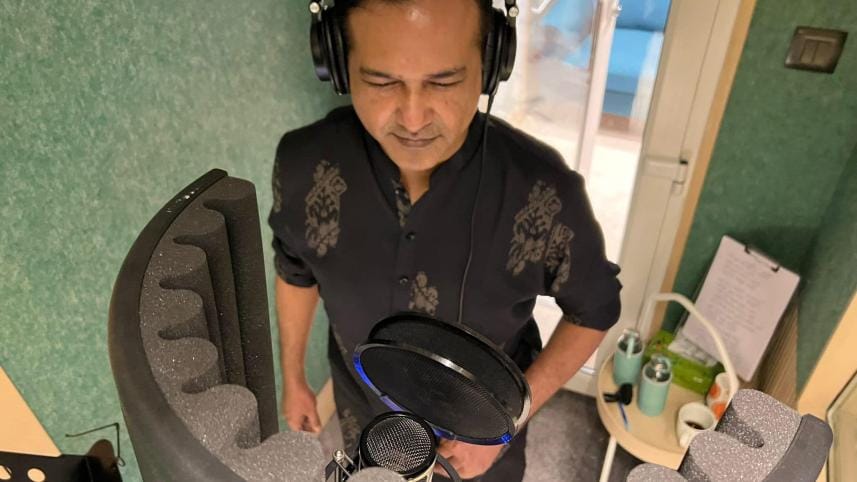Asif Akbar shares experience of recording in AR Rahman’s studio

Popular musician Asif Akbar recently shared his delightful experience of recording a song at the studio of Oscar-winning composer AR Rahman. Taking to his Facebook account today, he expressed his excitement to fans while also voicing his disappointment with the current state of the audio industry in our country.
Asif wrote, "I'm currently in Mumbai for some recording work. Yesterday, I had the opportunity to record two songs at KM Studio, owned by the renowned musician AR Rahman. The studio is incredibly spacious, spanning at least 15,000 square feet. Stepping into that studio brought me instant joy; it's truly a remarkable space."
Additionally, Asif mentioned that AR Rahman has an open space with a rooftop shed where students can take music lessons from him.
"I'm really delighted to have had the opportunity to record my songs in his personal studio. I experienced firsthand the optimal voice room temperature," added the singer.
While he showered praise on the Mumbai studio, he expressed disappointment over the current condition of studios in our country.
"Here in India, efforts are made to ensure proper professional security for artistes and musicians. However, our country still has a long way to go. Even when the government takes initiatives, there are always some corrupt individuals who try to hinder progress in studio production," the singer disclosed.
Asif believes that state intervention is crucial to preserve music and support musicians. He observes that everyone is preoccupied with associations and elections, causing institutional decay. As a singer, he feels limited in his ability to effect change.
"Having dedicated myself to music, I now struggle to sustain myself. With age, I prefer not to engage in shouting matches. I've stopped collaborating with amateur and seasonal producers to maintain quality. State, please intervene. Save our music and our musicians."
In his post, Asif reflected on the once-thriving audio industry of the country. There were numerous high-quality studios, and the industry was expected to expand over time. However, the opposite occurred.
While lamenting the situation, he revealed the harsh realities of studios, "Professional recording studios have all closed in Bangladesh. Tall buildings now occupy those spaces. Musicians are creating music in their homes or small shacks, struggling to make ends meet. Our industry has shrunk when it was meant to grow."



 For all latest news, follow The Daily Star's Google News channel.
For all latest news, follow The Daily Star's Google News channel. 
Comments